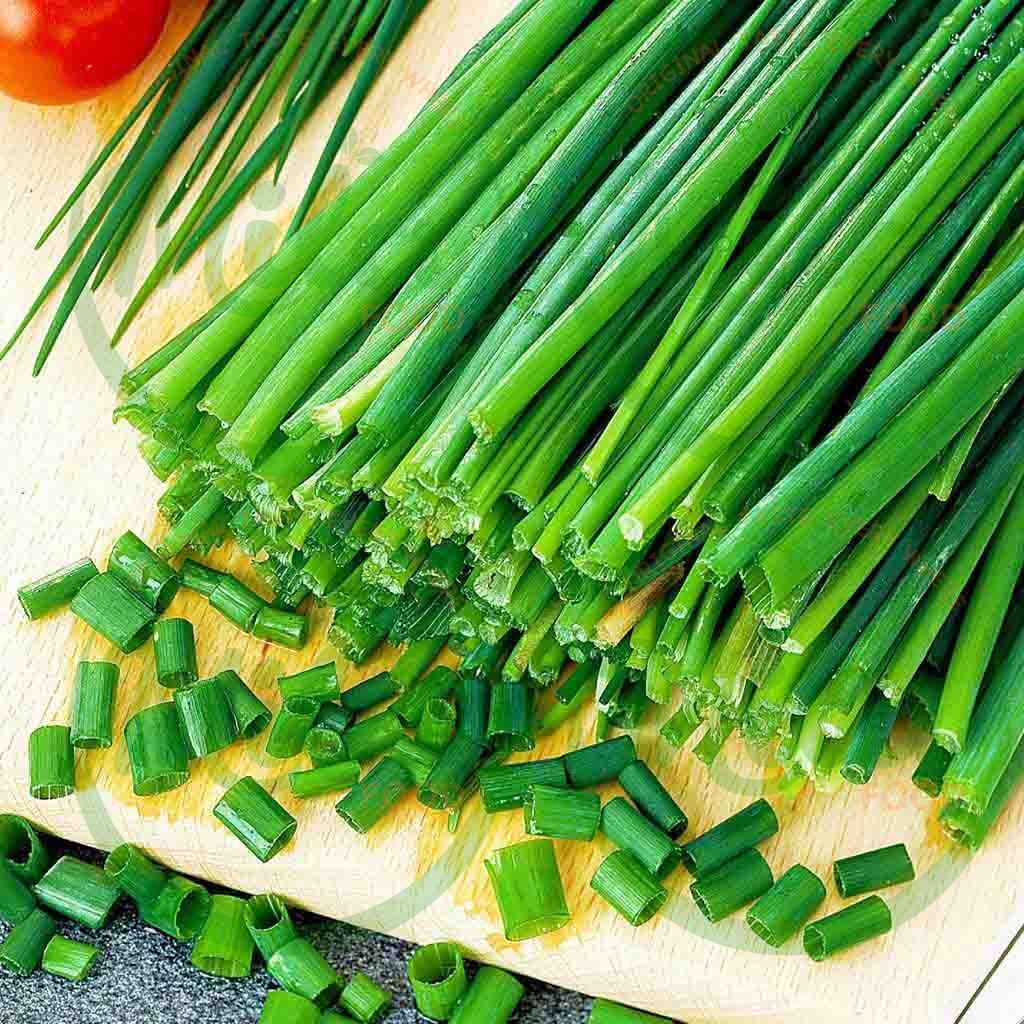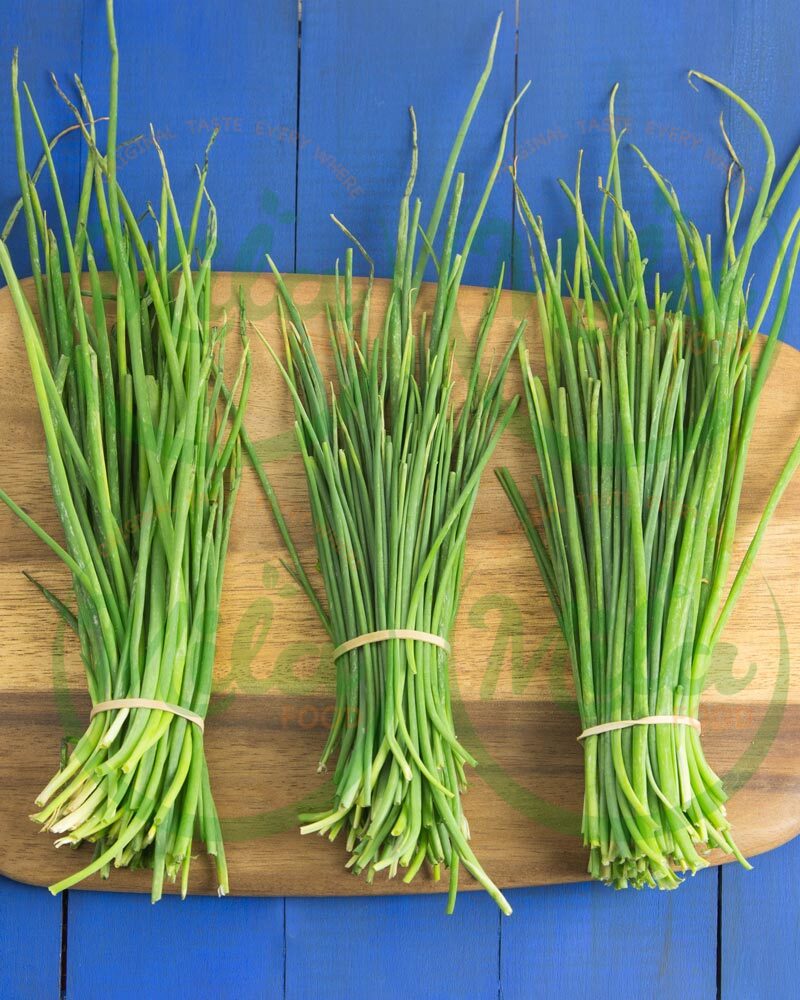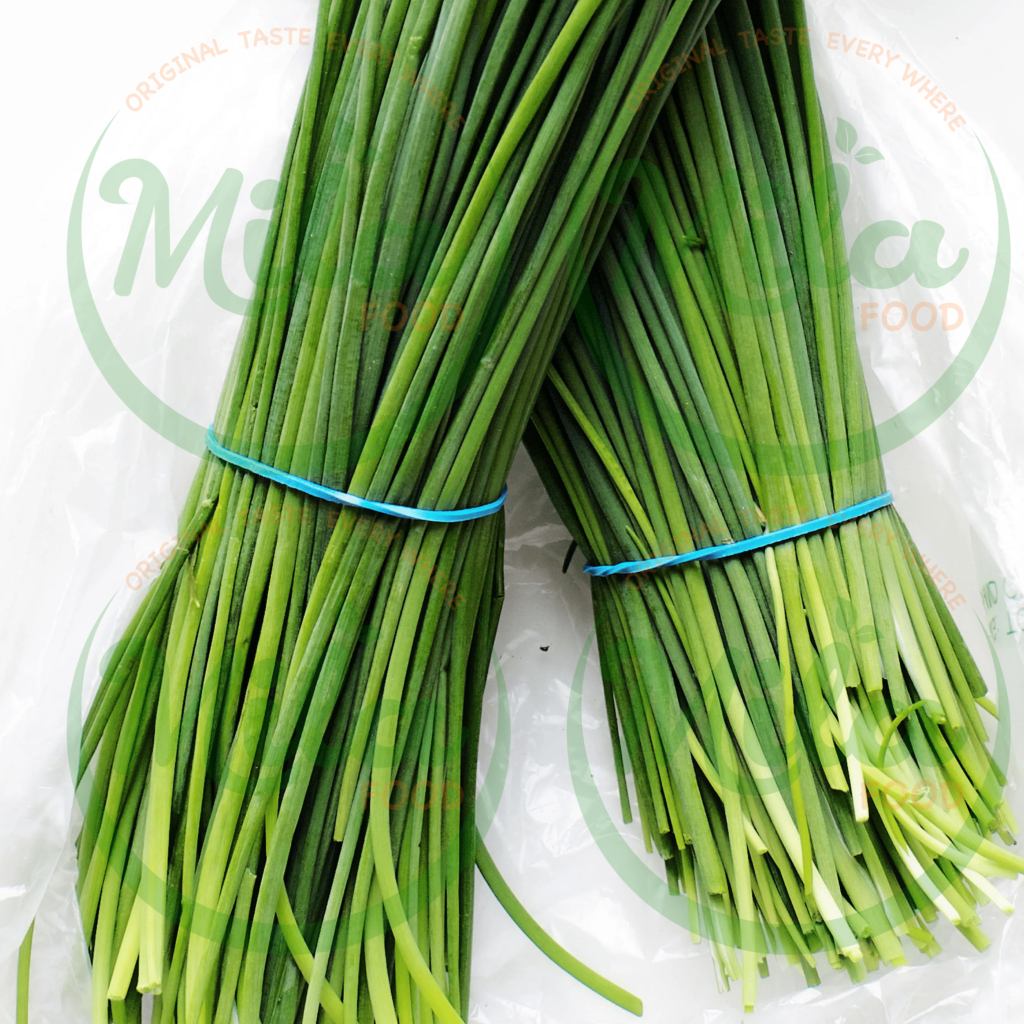


Egyptian chives, scientifically known as Allium schoenoprasum, have deep roots in Egyptian culinary heritage. Tracing back to ancient times along the banks of the Nile, these flavorful herbs were cultivated and cherished by Egyptian civilizations for their culinary and medicinal properties. Today, they continue to thrive in Egypt’s fertile soil, carrying forward a legacy that spans millennia.
Appearance and Flavor: Characterized by their slender, hollow stems and vibrant green color, Egyptian chives offer a delicate appearance that belies their robust flavor. Their taste is a harmonious blend of mild onion and garlic notes, with a subtle hint of herbal freshness. Whether used raw as a garnish or cooked into dishes, their flavor adds depth and complexity to a wide range of culinary creations.
Culinary Uses and Applications: Egyptian chives are prized for their culinary versatility, lending their distinctive flavor to a multitude of dishes. They are often used as a garnish to add a pop of color and flavor to salads, soups, and savory dishes. Additionally, they can be finely chopped and incorporated into omelets, stir-fries, and sauces, infusing dishes with their delightful aroma and taste. Their versatility makes them a staple ingredient in Egyptian cuisine and a favorite among chefs worldwide.
Nutritional Benefits: Beyond their culinary appeal, Egyptian chives offer a wealth of nutritional benefits. They are rich in vitamins A and C, as well as essential minerals like calcium and iron. Additionally, they contain powerful antioxidants and sulfur compounds that may have potential health benefits, including immune support and anti-inflammatory properties. Incorporating Egyptian chives into your diet can contribute to overall well-being and enhance the nutritional value of your meals.
Cultivation and Sustainability: Egyptian chives thrive in a variety of climates, making them relatively easy to cultivate. They can be grown in gardens, pots, or indoor containers, providing a fresh supply of aromatic herbs throughout the year. When grown sustainably, they require minimal resources and offer a renewable source of flavor for culinary enthusiasts and home cooks alike.

